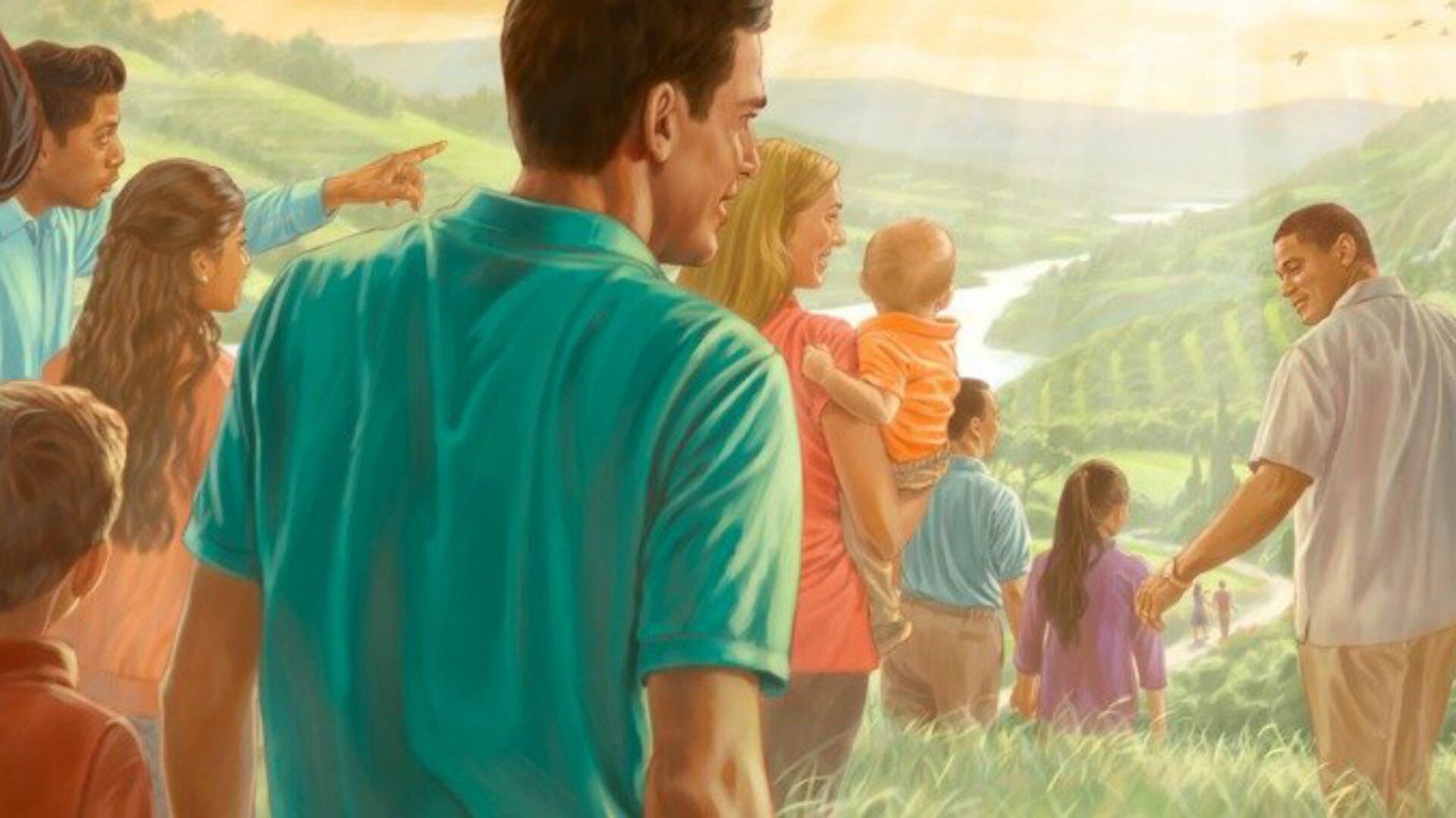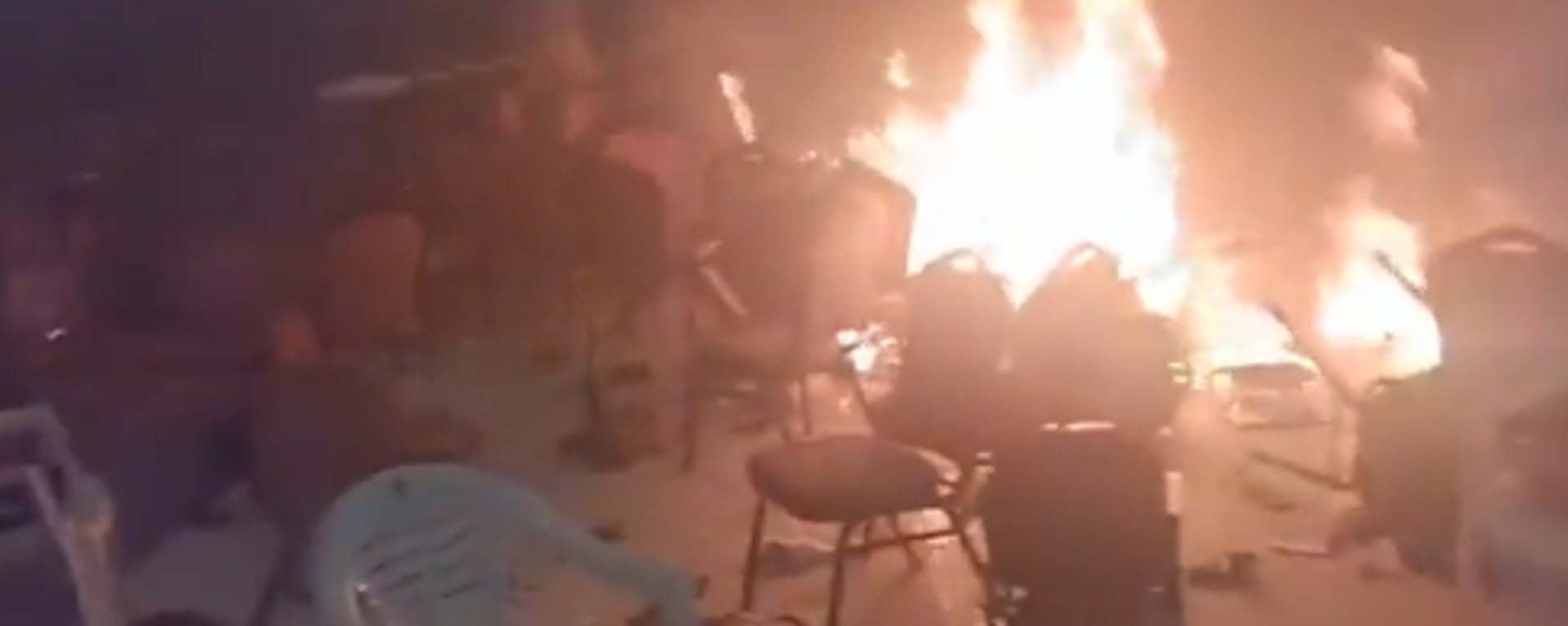https://sputniknews.in/20231031/who-are-jehovahs-witnesses-and-how-many-of-them-are-there-in-india-5153150.html
Who Are Jehovah's Witnesses and How Many of Them Are There in India?
Who Are Jehovah's Witnesses and How Many of Them Are There in India?
Sputnik India
Sputnik India presents details about the activities of Jehovah's Witnesses in India, following a string of explosions that occurred during a prayer meeting in Kerala on October 29th.
2023-10-31T17:53+0530
2023-10-31T17:53+0530
2023-10-31T17:53+0530
kerala
india
israel
supreme court of india
bomb threat
bomb explosion
suicide bombing
suicide bomber
ministry of defence (mod)
us
https://cdn1.img.sputniknews.in/img/07e7/0a/1f/5163820_416:0:1625:680_1920x0_80_0_0_60150c2ea8c6d8f026dcd1a9a8e6656b.jpg
The Authorities of the southern Indian state of Kerala reported that an explosion took place during a Christian prayer group on October 29, resulting in one death and a minimum of 36 injuries.Jehovah's Witnesses have gained a reputation for their outreach initiatives across different countries. They go door-to-door, as well as assemble in public places, with the goal of sharing religious literature and spreading their message. However, many people are unfamiliar with its beliefs, and the organisation tends to make headlines over issues of persecution. The group has around 60,000 followers in India.So, who are they?Jehovah’s Witnesses: HistoryIn the late 1800s, in Pittsburgh, United States, a group of students deeply immersed themselves in the study of the Bible, laying the foundation for the tale of the Jehovah's Witnesses. Charles Taze Russell, an ascetic with a Presbyterian upbringing, served as the group's leader. A translation of the Hebrew word 'Yahweh' or 'Jehovah' means 'God the Father' in the minds of these scholars.Russell and his followers had high hopes that Jesus Christ would bring about a "millennium" - a thousand years of peace on Earth. In this "Golden Age," poverty and inequality would cease to exist, and the Earth would regain its pristine purity through the establishment of a "righteous" social framework.The Jehovah's Witnesses foresaw long ago that the Battle of Armageddon would signify the beginning of the world governments' downfall in 1914. The term "Armageddon" specifically refers to Mount Megiddo in Israel, where some Christians prophesy that the ultimate battle between good and evil will take place. Jehovah's Witnesses hold the belief that Jesus will emerge as the leader of a mighty "heavenly army" to conquer God's enemies in an epic Battle of Armageddon on a global scale.Over time, Jehovah's Witnesses have chosen to interpret the timetable for Jesus Christ's return rather than fixating on establishing precise dates. Nonetheless, they continue to anticipate the Golden Age that Russell and his Bible students had predicted.Most Christians hold the belief that the Father, the Son, and the Holy Spirit are one God, but Jehovah's Witnesses reject this concept, viewing them as three distinct individuals.But Jehovah's Witnesses, like members of other Christian denominations, honour God through music and worship. They have meeting places known as 'Kingdom Halls', which are unassuming structures that resemble small conference centres.Jehovah's Witnesses are known for the amount of time they devote to Bible study and door-to-door evangelism.They decline to receive blood transfusions, abstain from saluting the flag, participating in elections, enlisting in the military, or singing the national anthem. These actions, in their eyes, would compromise their dedication to God.How Many Members of Jehovah's Witnesses Are There in India?Jehovah's Witnesses arrived in India in 1905, opened a branch in Mumbai (then formally known as Bombay) in 1926, and were officially registered in 1978.The worship of Jehovah's Witnesses is mostly unhindered in India. Nevertheless, their website acknowledges that they have faced instances of religious intolerance and mob attacks in certain states.According to court documents, the children respectfully stood during the morning assembly while the anthem played. However, they chose not to sing due to their religious beliefs as Jehovah's Witnesses.The court ruled that standing there did not clearly prevent the National Anthem from being sung or disturb the assembly.Jehovah's Witnesses in India persist in engaging with government officials and pursuing legal action to safeguard their fundamental right to practice their faith without hindrance.*banned in Russia as an extremist organization
https://sputniknews.in/20231030/kerala-serial-blast-what-is-known-so-far-about-attack-on-jehovahs-witnesses-meeting-5138103.html
kerala
india
israel
us
Sputnik India
feedback.hindi@sputniknews.com
+74956456601
MIA „Rossiya Segodnya“
2023
Swapna Nair
https://cdn1.img.sputniknews.in/img/07e7/09/12/4320104_0:0:681:681_100x100_80_0_0_ca8a7d4d582609272840ffdd1cde7278.jpg
Swapna Nair
https://cdn1.img.sputniknews.in/img/07e7/09/12/4320104_0:0:681:681_100x100_80_0_0_ca8a7d4d582609272840ffdd1cde7278.jpg
News
en_IN
Sputnik India
feedback.hindi@sputniknews.com
+74956456601
MIA „Rossiya Segodnya“
Sputnik India
feedback.hindi@sputniknews.com
+74956456601
MIA „Rossiya Segodnya“
Swapna Nair
https://cdn1.img.sputniknews.in/img/07e7/09/12/4320104_0:0:681:681_100x100_80_0_0_ca8a7d4d582609272840ffdd1cde7278.jpg
kerala, explosion, jehovah's witnesse, persecution-related issues, pittsburgh, united states, bible, charles taze russell, "yahweh," "jehovah", "golden age," battle of armageddon, trinity — the father, the son, and the holy spirit, caesar, blood transfusions, mumbai, religious intolerance, national honour act of 1971, national anthem, india
kerala, explosion, jehovah's witnesse, persecution-related issues, pittsburgh, united states, bible, charles taze russell, "yahweh," "jehovah", "golden age," battle of armageddon, trinity — the father, the son, and the holy spirit, caesar, blood transfusions, mumbai, religious intolerance, national honour act of 1971, national anthem, india
Who Are Jehovah's Witnesses and How Many of Them Are There in India?
Sputnik India presents details about the activities of Jehovah's Witnesses* in India, following a string of explosions that occurred during a prayer meeting in Kerala on October 29.
The Authorities of the southern Indian state of Kerala reported that an explosion took place during a Christian prayer group on October 29, resulting in one death and a minimum of 36 injuries.
Hundreds of Jehovah's Witnesses were gathered in a convention hall in Kalamassery town, Ernakulam district, for a Sunday morning prayer service when the explosion occurred. The Jehovah's Witnesses, who have been in existence for over a century, are quite common in Kerala.
Jehovah's Witnesses have gained a reputation for their outreach initiatives across different countries. They go door-to-door, as well as assemble in public places, with the goal of sharing religious literature and spreading their message. However, many people are unfamiliar with its beliefs, and the organisation tends to make headlines over issues of persecution. The group has around 60,000 followers in India.
Jehovah’s Witnesses: History
In the late 1800s, in Pittsburgh, United States, a group of students deeply immersed themselves in the study of the Bible, laying the foundation for the tale of the Jehovah's Witnesses. Charles Taze Russell, an ascetic with a Presbyterian upbringing, served as the group's leader. A translation of the Hebrew word 'Yahweh' or 'Jehovah' means 'God the Father' in the minds of these scholars.
Russell and his followers had high hopes that Jesus Christ would bring about a "millennium" - a thousand years of peace on Earth. In this "Golden Age," poverty and inequality would cease to exist, and the Earth would regain its pristine purity through the establishment of a "righteous" social framework.
Despite Russell's death in 1916, his organisation continued and expanded, and in the 1930s the term "Jehovah's Witnesses" was formally adopted.
The Jehovah's Witnesses foresaw long ago that the Battle of Armageddon would signify the beginning of the world governments' downfall in 1914. The term "Armageddon" specifically refers to Mount Megiddo in Israel, where some
Christians prophesy that the ultimate battle between good and evil will take place. Jehovah's Witnesses hold the belief that Jesus will emerge as the leader of a mighty "heavenly army" to conquer God's enemies in an epic Battle of Armageddon on a global scale.
They also held to the Book of Revelation's prophecy that 144,000 'faithful Christians' would follow Jesus from heaven and rule the globe after Armageddon. On a restored earth, other faithful Christians would be reunited with their deceased loved ones.
Over time, Jehovah's Witnesses have chosen to interpret the timetable for Jesus Christ's return rather than fixating on establishing precise dates. Nonetheless, they continue to anticipate the Golden Age that Russell and his Bible students had predicted.
Religious scholars refer to Jehovah's Witnesses as a "millenarian movement" because of their belief in a literal thousand-year earthly reign of Jesus.
Most Christians hold the belief that the Father, the Son, and the Holy Spirit are one God, but Jehovah's Witnesses reject this concept, viewing them as three distinct individuals.
Jehovah's Witnesses believe that Jesus is separate from God - not united as one person with Him. Therefore, God's active power is called the "Holy Spirit". Jehovah's Witnesses differ from mainstream Christianity in that they reject the idea that God is "triune".
But Jehovah's Witnesses, like members of other Christian denominations, honour God through music and worship. They have meeting places known as 'Kingdom Halls', which are unassuming structures that resemble small conference centres.
Jehovah's Witnesses are known for the amount of time they devote to Bible study and door-to-door evangelism.
In many areas, Jehovah's Witnesses recognise the legitimate authority of the state. For example, they obey Jesus' command in Mark 12:17 to "render unto Caesar what is Caesar's" by paying taxes.
They decline to receive blood transfusions, abstain from saluting the flag, participating in elections, enlisting in the military, or singing the national anthem. These actions, in their eyes, would compromise their dedication to God.
How Many Members of Jehovah's Witnesses Are There in India?
Jehovah's Witnesses arrived in India in 1905, opened a branch in Mumbai (then formally known as Bombay) in 1926, and were officially registered in 1978.
The organisation claims that there are some 56,747 Bible teachers in India. There are currently 947 congregations of the sect in India. The Indian constitution provides for the freedom to practise, profess and propagate one's faith, which benefits the sect.
The worship of Jehovah's Witnesses is mostly unhindered in India. Nevertheless, their website acknowledges that they have faced instances of religious intolerance and mob attacks in certain states.
The community was involved in a historic case called Bijoe Emmanuel v. State of Kerala. The case concerned the expulsion of three community students, Bijoe, Binu Mol and Bindu Emmanuel, from school in 1985 for refusing to sing the national anthem.
According to court documents, the children respectfully stood during the morning assembly while the anthem played. However, they chose not to sing due to their religious beliefs as Jehovah's Witnesses.
Following the children's expulsion, their father filed a writ petition in the Kerala High Court, arguing that their fundamental rights to freedom of expression under Article 19 and freedom of religion under Article 25 had been violated. The national anthem didn't contain "any words or thoughts" that could offend anyone's religious beliefs, the court said, dismissing the case.
A special leave petition was eventually filed by the father in the Supreme Court. "Whoever intentionally prevents the singing of the national anthem or causes disturbance to any assembly engaged in such singing shall be punished," reads Section 2 of the Prevention of Insults to National Honour Act, 1971, and the apex court deliberated.
The court ruled that standing there did not clearly prevent the National Anthem from being sung or disturb the assembly.
It ruled that the children's rights to freedom of expression and religion had been violated by their removal from school. As a result, it overturned the High Court's decision and ordered the then Kerala government to reinstate the children to school.
Jehovah's Witnesses in India persist in engaging with government officials and pursuing legal action to safeguard their fundamental right to practice their faith without hindrance.
*banned in Russia as an extremist organization



